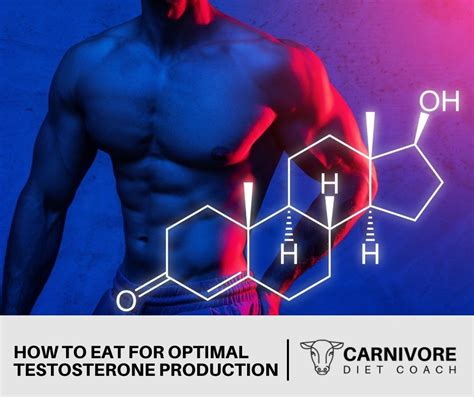What daily habits boost natural testosterone & combat fatigue in men?

Understanding the Testosterone-Fatigue Connection
For many men, persistent fatigue and a noticeable dip in energy levels can be more than just signs of a busy life; they can often be linked to suboptimal testosterone levels. Testosterone, a primary male hormone, plays a crucial role not only in libido and muscle mass but also in mood, cognitive function, and energy. When these levels naturally decline with age or due to lifestyle factors, fatigue can become a pervasive issue, creating a cycle that further impacts motivation and overall health. Fortunately, a proactive approach through daily habits can significantly impact both.
Pillars of Natural Testosterone Enhancement
1. Optimize Your Nutritional Intake
Diet is foundational. Prioritize whole, unprocessed foods. Healthy fats are essential for hormone production; incorporate sources like avocados, nuts, seeds, and olive oil. Adequate lean protein (chicken, fish, legumes) supports muscle maintenance and growth, which in turn can influence testosterone. Limit processed sugars and refined carbohydrates, as they can lead to insulin resistance and inflammation, negatively impacting hormone balance.

2. Embrace Strength Training & HIIT
Regular physical activity, particularly strength training and high-intensity interval training (HIIT), is a potent natural testosterone booster. Resistance exercises, such as lifting weights, stimulate hormone production. HIIT, with its short bursts of intense activity followed by brief recovery periods, has also been shown to be effective. Aim for 3-4 sessions per week, ensuring adequate rest days to prevent overtraining, which can paradoxically suppress testosterone.
3. Prioritize Quality Sleep
Sleep is non-negotiable for hormone regulation. Testosterone production largely occurs during deep sleep cycles. Aim for 7-9 hours of high-quality sleep per night. Establish a consistent sleep schedule, create a cool, dark, and quiet bedroom environment, and avoid screens before bed to optimize melatonin production and ensure restorative rest.

4. Manage Stress Effectively
Chronic stress elevates cortisol levels, a hormone that can directly suppress testosterone production. Incorporate stress-reduction techniques into your daily routine. This could include mindfulness meditation, deep breathing exercises, spending time in nature, yoga, or engaging in hobbies you enjoy. Finding healthy outlets for stress is vital for both hormonal balance and mental well-being.
5. Ensure Adequate Vitamin D & Zinc
Both Vitamin D and Zinc are crucial micronutrients linked to testosterone production. Regular, safe sun exposure is the best way to get Vitamin D; otherwise, consider fortified foods or supplementation under medical guidance. Zinc can be found in red meat, shellfish, nuts, and legumes. Deficiencies in either can impact hormone levels and contribute to fatigue.

Combating Persistent Fatigue
While many of the habits above also directly combat fatigue, some additional strategies can provide an immediate energy lift:
- Stay Hydrated: Dehydration is a common culprit for low energy. Drink plenty of water throughout the day.
- Mindful Eating Habits: Avoid large, heavy meals that can cause a post-meal slump. Instead, opt for smaller, balanced meals and snacks to maintain stable blood sugar and energy levels.
- Regular Movement Breaks: If you have a sedentary job, take short breaks every hour to stand, stretch, or walk around. This can prevent energy dips and improve circulation.
- Limit Stimulants & Alcohol: While coffee can provide a temporary boost, excessive caffeine or alcohol can disrupt sleep patterns and lead to a rebound effect of increased fatigue.

The Synergistic Benefits
It’s important to recognize that these habits don’t work in isolation; they create a powerful synergy. Better sleep reduces stress, which in turn supports testosterone production and enhances energy. Regular exercise improves sleep quality and helps manage stress. A nutrient-rich diet fuels your workouts and supports overall hormone health. By adopting a holistic approach, men can effectively address both low testosterone and chronic fatigue, paving the way for improved vitality and quality of life.
Conclusion
Boosting natural testosterone and combatting fatigue isn’t about quick fixes; it’s about cultivating sustainable daily habits that nourish your body and mind. By focusing on a balanced diet, consistent exercise, quality sleep, effective stress management, and adequate micronutrient intake, men can significantly enhance their energy levels, optimize hormone function, and reclaim their vitality. Start small, be consistent, and observe the profound positive changes these habits can bring.










